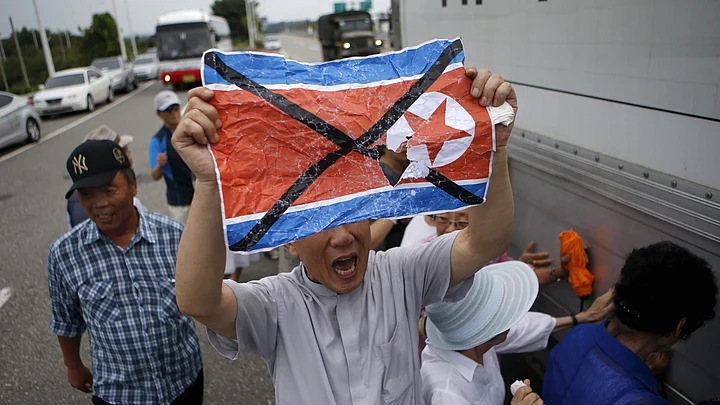Two senior North Korean officials, including an army Colonel specialising in espionage against the South, defected to South Korea in 2015, the Seoul government said on Monday.
The announcement came three days after Seoul revealed 13 North Koreans working at the same restaurant in a foreign country had defected to the South. It was the largest group defection since North Korea’s young leader Kim Jong Un took power in late 2011.
On Monday, the South’s Unification and Defence Ministries said the North Korean army colonel defected last year and had been granted political asylum. He had worked in the secretive General Reconnaissance Bureau, which is focused on espionage activities against the South.
The defection of a high-ranking officer in the General Reconnaissance Bureau would be a coup for Seoul.
The reconnaissance agency was believed to be behind two deadly attacks blamed on Pyongyang that killed 50 South Koreans in 2010. Both ministries refused to provide further details including a motive for the defection.
The Unification Ministry, which handles North Korea issues, also said that a senior diplomat who was posted in an African country had defected to the South last year with his family.
There have been occasional reports of lower-level North Korean soldiers defecting but it is unusual for a North Korean official of the rank of a colonel to flee to the South.
The highest-level North Korean who took asylum in South Korea has been the late Hwang Jang-yop, a senior ruling Workers’ Party official who once tutored Kim’s late dictator father Kim Jong Il.
Hwang’s defection in 1997 was hailed by many South Koreans as an intelligence bonanza and a clear sign that the North’s political system was inferior to the South’s.
The main liberal opposition Minjoo Party of South Korea, on Monday, accused the government of conservative President Park Geun-hye of trying to influence conservative voter turnout ahead of Wednesday’s parliamentary elections by announcing the defection of the restaurant workers last week.
More than 29,000 North Koreans have defected to South Korea since the end of the 1950-53 Korean War, according to South Korean government records. Many defectors have testified they wanted to avoid the North’s harsh political system and poverty.
Defections are a bitter source of contention between the rival Koreas, which are still divided along the world’s most heavily fortified border since the end of the Korean War.
Pyongyang usually accuses Seoul of enticing North Korean citizens to defect, something Seoul denies.
(With AP and Reuters inputs.)
(At The Quint, we question everything. Play an active role in shaping our journalism by becoming a member today.)
